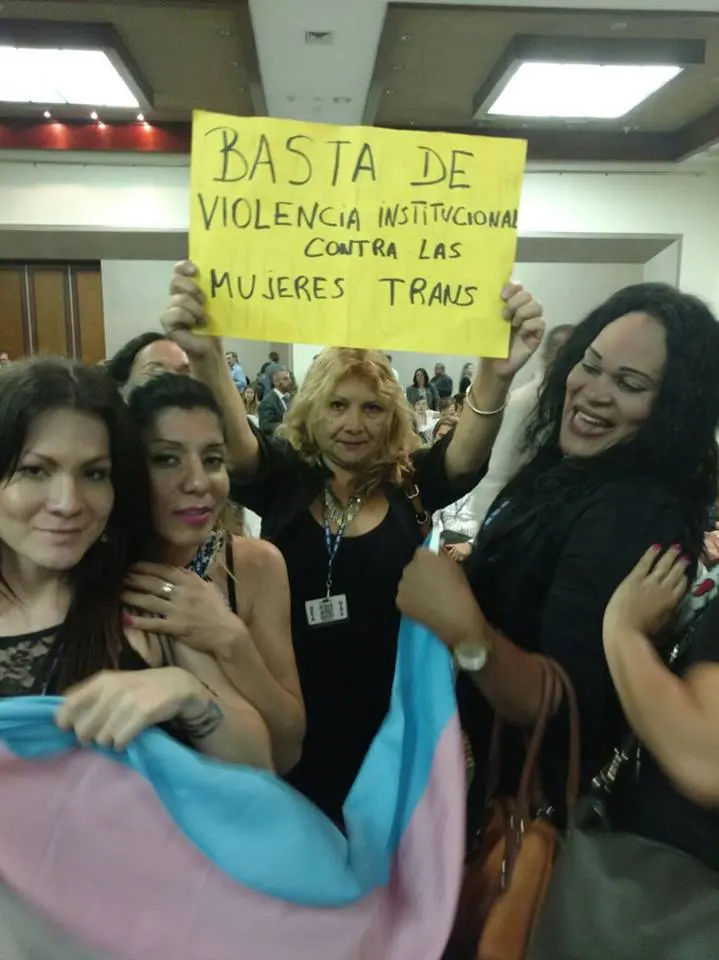RedLacTrans: Growth of a Regional Trans Network
“Without a body, you don’t have arms and legs.”
The Latin American and Caribbean network of transgender people (RedLacTrans) is the first regional transgender network in Latin America and the Caribbean, and was founded in 2004. However, it wasn’t until 2013, when RedLacTrans first received core funding from the Robert Carr Fund, that it was able to propel its operations to effectively serve sub-regions – from the Andean region to Mesoamerica to the Caribbean – and to catalyze change at the regional and national levels across 23 member countries.[1]
Trans Populations in Latin America and the Caribbean
- HIV prevalence in trans populations is estimated to be up to 35%
- Trans populations are still not recognized in many national HIV planning processor programs
- Human rights violations on the basis of transgender identity are abundant: in 2017, 25% of reported cases involved murder; 30% involved physical assault; and 5% involved sexual assault.
- A wave of political conservativism across the region currently threatens any tenuous progress on gender identity rights.

© RedLacTrans
The support provided by the RCF grant from 2016-2018 drove significant growth in the network, which was at its inception hosted by ATTA with an unfunded/volunteer Secretariat. RCF grant funds enabled the Secretariat to employ a full-time paid Director, and to focus on the goal of building leadership and management capacity in trans staff members, both at the Secretariat and at the member organization level. The network’s board, the function of which is supported through RCF funds, is made up entirely of trans activists. A strategic planning process has also been supported, to assure the network has a plan in place for further development from 2017-2022, and RCF funds have support specific sub-strategies for the Andean, Southern Cone, and Mesoamerican regions – assuring that budding organizations in each sub-region are prepared to address their own unique challenges. Core support has also provided the means for RedLacTrans to establish its own legal identity as an NGO, which will give further autonomy for fundraising opportunities and allow the network to fully determine its own growth path.
Critically, the increased organizational stability and capacity made possible by RCF funds also allowed RedLacTrans to successfully apply and be awarded a regional grant from the Global Fund to Fight AIDS, Tuberculosis and Malaria. This award represents an additional US$ 3,085,316 leveraged to fund activities by RedLacTrans and its member organizations in 13 countries.
The funds granted for activity implementation, by both the Robert Carr Fund and additional funders such as the Global Fund, are important: they provide for the institutional ‘body’ of RedLacTrans, which allows the ‘arms and legs’ of programming to have impact on the lives of trans people throughout the region. Thereby, the ‘arms’ of RedLacTrans are able to do everything from maintain Casa Trans, a trans safe space and service provider, in Buenos Aires; to provide Secretariat support and mentoring to national member organizations on advocacy for government support of similar spaces (successful in Peru, in 2017). The ‘legs’ RedLacTrans fight for a foundation for national-level programming, by conducting large-scale advocacy at venues such as the Organization of American States (OAS) and the Interamerican Commission on Human Rights. This includes the promotion of key advocacy tools and landmark reference documents on trans population in Latin America and the Caribbean, such as the report “Esperando la Muerte” (Waiting for Death). These movements are only possible because the RedLacTrans Secretariat has stable core support from the Robert Carr Fund – support that brings it to life and allows it to reach, connect and inspire movement by trans people across the entire region.
[1] REDLACTRANS has member organizations in Argentina, Bahamas, Barbados, Belize, Bolivia, Brazil, Colombia, Chile, Costa Rica, Ecuador, El Salvador, Guatemala, Honduras, Jamaica, Mexico, Nicaragua, Panama, Paraguay, Peru, Dominican Republic, Suriname, Trinidad & Tobago and Uruguay.